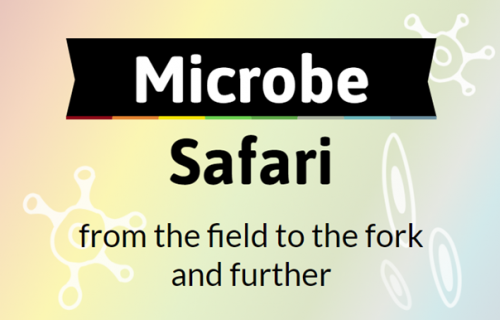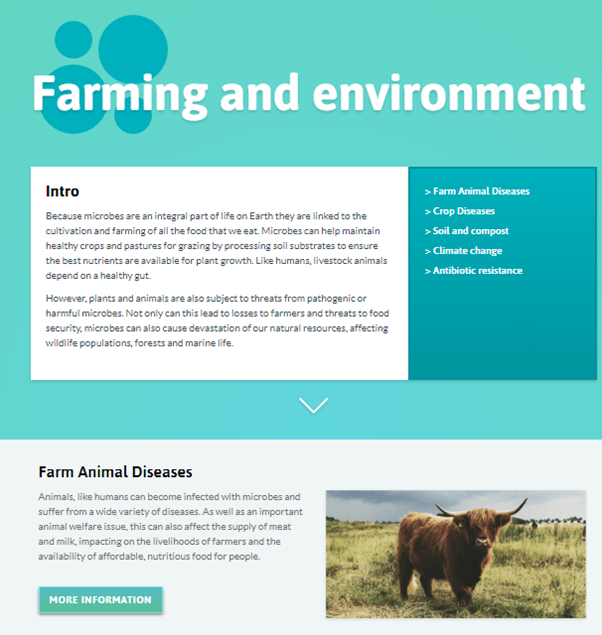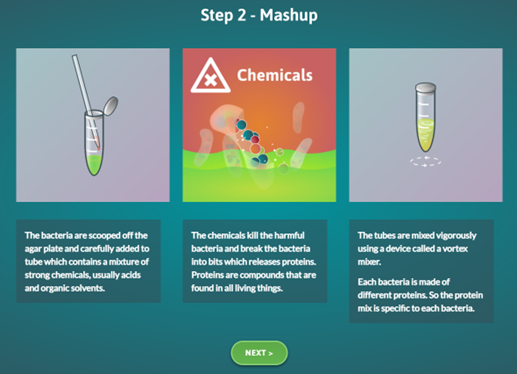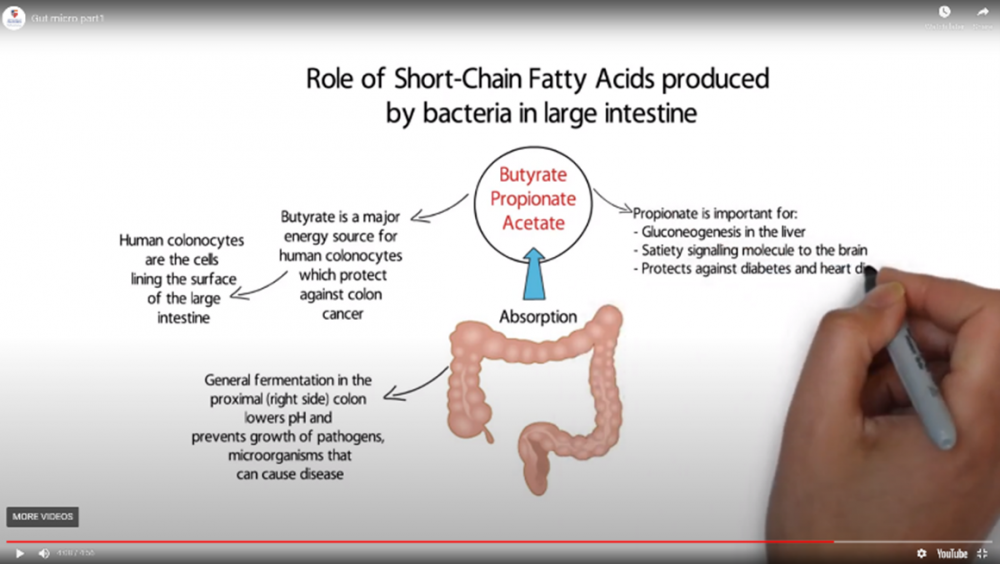Microbes play a wide variety of essential roles in keeping our guts healthy and in supporting food and agriculture production. Conversely, some microbial populations can cause serious disease, as foodborne pathogens or infectious agents of food-producing animals and crops.
With the aim of connecting learners and the general public to these important themes, and to offer educational support in this area, SEFARI researchers have created “Microbe Safari”, an interactive website focusing on the diversity of microbes that are related to gut health, food safety, food production and the environment.

Stage
Directory of Expertise
Purpose
Microbes play a diversity of important roles in relation to the food we eat. Gut microbes help us digest our food and provide numerous health benefits, although other microbes (e.g., Shiga-toxin Escherichia coli and Campylobacter jejuni) can cause foodborne infections and illness which occasionally can also be life threatening. Microbes also help us produce food, such as cheese, bread, alcoholic drinks and chocolate, and they function within soil to support soil health, crop growth and farm animal pastures. In addition, we are increasingly aware of how the food we eat impacts on the environment and microbes are central to the health and functioning of the natural environment too, i.e., the concept of One Health. Therefore, it is vital that we fully understand the effects microbes have, both positive and negative, and particularly within the context of the sustainable food production systems and in relation to climate change.
The importance of research and communicating scientific information effectively to engage the public, especially in relation to public health issues, has been underlined through the COVID-19 pandemic. Furthermore, antimicrobial resistance is another critical issue in today’s world, and success in tackling this relies on awareness and understanding by the general public and within a range of sectors including healthcare, agriculture, environment and policy.
With this in mind, and building on our previous experiences of public engagement events and running activities within schools, we sought to create an accessible web resource to engage young learners and the general public with the role that microbes play in relation to food. As well as drawing on expertise within our own institutes, the project team also benefitted from conversations with the Royal Botanic Gardens Edinburgh and support from SSERC. The resultant, freely accessible, resource covers themes that affects day-to-day lives on an individual level but also on a wider scale, and how they relate to important issues such as sustainable farming, environmental impact, animal welfare and antibiotic resistance.
Results
“Microbe Safari”, is a website which provides useful and accessible information on the four themes of Gut health, Foodborne Pathogens, Food Production, Farming and Environment as well as hosting educational animations and videos, activities, downloadable resources and links to external resources. The website also highlights the importance of sustainable food productions systems that minimize adverse impacts on the environment and provides information on antimicrobial resistance, from a One Health perspective.

In each section, you can find an introduction to the theme with more detailed information provided in separate pages on relevant key areas. For example, in ‘Farming and environment’, sub sections can be found on farm animal and crop diseases and the factors that influence them, the importance of soil and compost, the relationships between microbes and climate change, and information on antimicrobial resistance.

We also created an online interactive Science, Technology, Engineering and Mathematics (STEM) activity named “Disease Detectives”, which demonstrates how mass spectrometry (a technique used to detect and identify molecules based on their the mass to charge (m/z) ratio) is used to help in the identification of bacteria and other foodborne pathogens. The technique is also used in our SEFARI research, and we used our knowledge to develop a narrative, together with our experience of running activities at public engagement events, to highlight how science can be applied to investigate public disease outbreak scenarios.

Building even further, we have created two animations, focussing on the role of microbes in gut health which are also available (Part 1; Part 2). These short videos highlight the importance of having a diversity of bacteria in your gut and how your diet can support their growth and in turn contribute to your gut health and general wellbeing.

The Microbe Safari website is a platform for downloadable resources for teachers to support classroom activities, linking to the curriculum for excellence in the areas of STEM, Sciences, Health and Wellbeing and Technologies. We will continue to create and make available new resources, working with SEFARI scientists across a range of disciplines. Furthermore, on our platform we provide links to other related on-line trusted resources, created by SEFARI scientists and partner organisations, and can highlight upcoming engagement events – so do keep an eye on developments!
Benefits
Engagement of teachers and learners with STEM activities often depends on proximity of schools to scientific organisations where outreach activities are conducted at a local level and through previously established connections. Microbe Safari is part of a growing body of on-line STEM resources that SEFARI are making freely accessible to everyone, in a bid to widen access.
The Microbe Safari website provides an opportunity to host a variety of information covering a wide range of topics in one readily accessible location. The design of the site enables us to show the interconnectedness of issues that microbes raise, such as the relationship between antibiotic use on farms and antibiotic resistant microbes in your gut, and how environmental factors, including climate, may influence food safety. The site also allows us to highlight that there are “good” and “bad” bacteria, which promotes a more balanced and nuanced understanding of messages that often appear conflicting, particularly relating to food safety.
During development of the website, conversations with teachers aided our understanding of the type of resources which are most useful for each stage of learning, and the importance of linking to areas within the curriculum for excellence. “The Microbe Safari website is fantastic. I've incorporated it into our Cells and Microbes Broad General Education topic as it fits perfectly” - science teacher at Bucksburn Academy. In addition, productive discussions with our web developers enabled the design of a site that is easy to navigate and has engaging and accessible content for our audience (e.g., text, graphical and video resources). We also benefitted from the valuable input and support from Food Standards Scotland, which allowed us to ensure the advice on the site is in-line with accurate recommendations, and that food safety messages are communicated effectively to the public.
Finally, the website can be edited at any time, enabling us to keep information up-to-date and topical, be responsive to emerging issues, and provide further information based on teachers’ needs. An example of this is the development of a curriculum-linked resource outlining the science behind the COVID-19 PCR test, which was developed through the project and is now also hosted on the site.
Project Partners
Food Standards Scotland
Pat Bain, University of Aberdeen